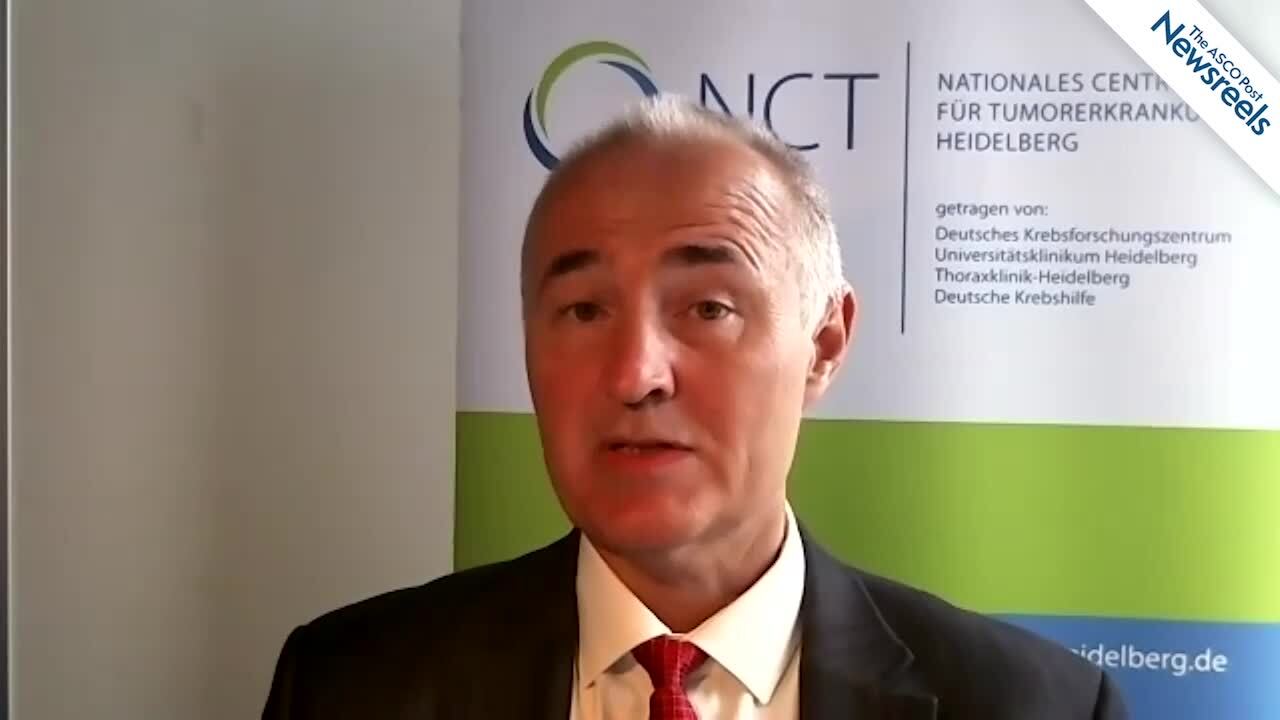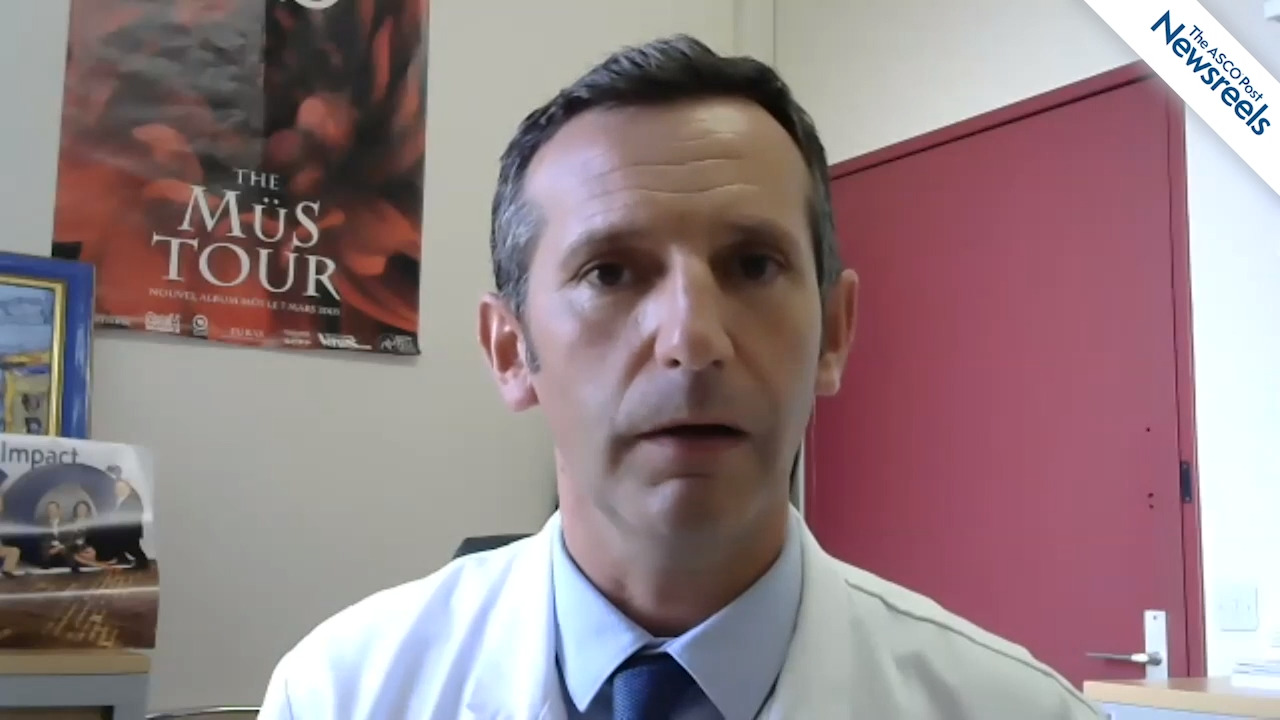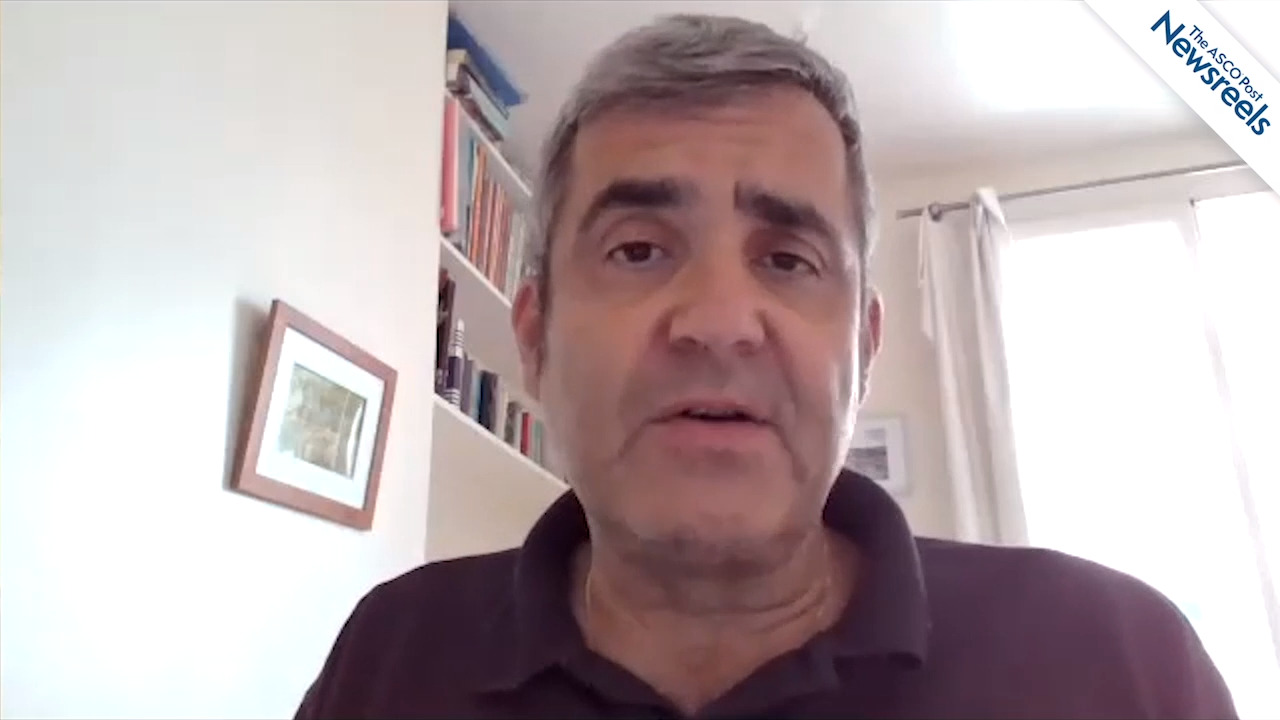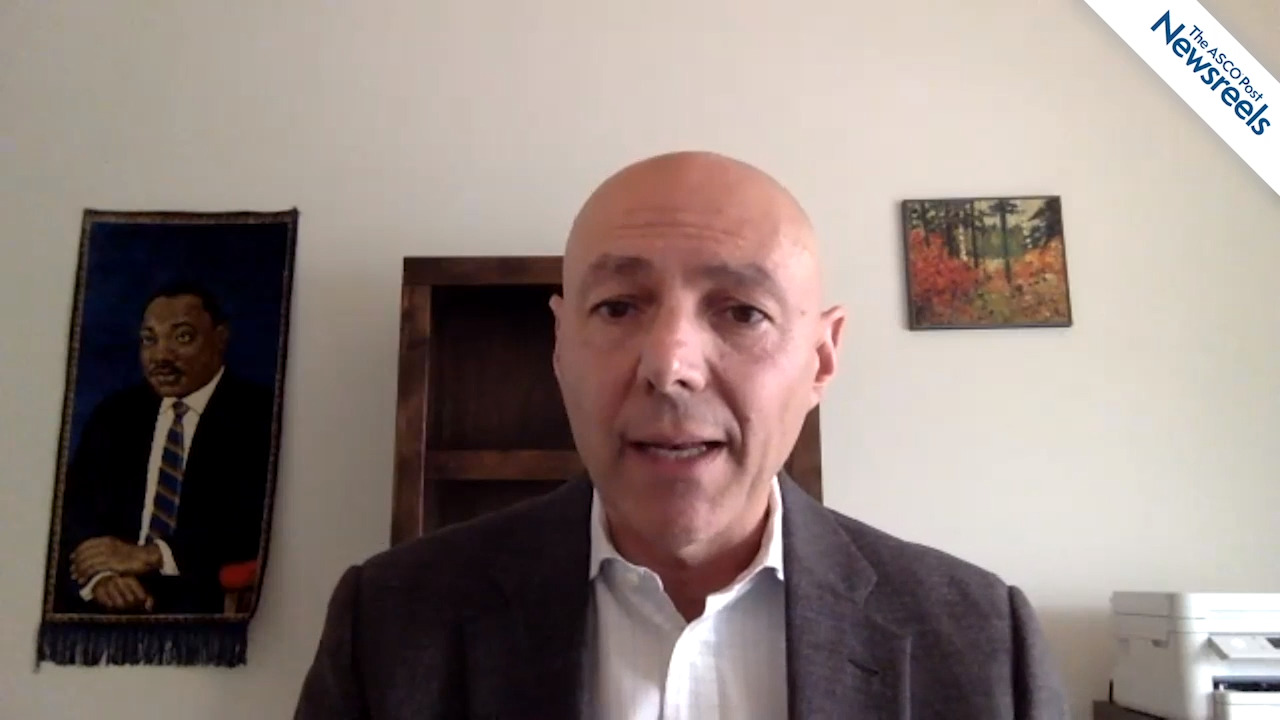Related Videos
Andreas Schneeweiss, MD, on Breast Cancer: Comparing Neoadjuvant Chemotherapy With Paclitaxel, Doxorubicin, and Carboplatin
Andreas Schneeweiss, MD, of the Heidelberg University Hospital and German Cancer Research Center, discusses phase III survival data from the GeparOcto trial, which compared the neoadjuvant chemotherapy intense dose-dense EPC (epirubicin, paclitaxel, and cyclophosphamide) with weekly paclitaxel and liposomal doxorubicin (with or without carboplatin in triple-negative breast cancer) for patients with high-risk early breast cancer (Abstract 160O).
Benjamin Besse, MD, PhD, on NSCLC: Neoadjuvant Atezolizumab for Resectable Disease
Benjamin Besse, MD, PhD, of the Gustave Roussy Cancer Centre, discusses results of the phase II PRINCEPS trial, which assessed, for the first time, the effect of just one injection of the immunotherapy atezolizumab before surgery in patients with resectable non–small cell lung cancer (Abstract 1215O).
Thierry Andre, MD, on Colorectal Cancer: Health-Related Quality of Life With Pembrolizumab vs Chemotherapy
Thierry Andre, MD, of Hôpital Saint-Antoine, discusses phase III KEYNOTE-177 findings on the reduced risk of disease progression or death in patients receiving pembrolizumab monotherapy as a first-line treatment of microsatellite instability–high and/or mismatch repair–deficient metastatic colorectal cancer (Abstract 396O).
Stephen R.D. Johnston, MD, PhD, on Early Breast Cancer: Abemaciclib in High-Risk Disease
Stephen R.D. Johnston, MD, PhD, of The Royal Marsden NHS Foundation Trust, discusses phase III study findings from the global monarchE trial, which showed that when added to standard adjuvant endocrine therapy, abemaciclib is the first CDK4/6 inhibitor to improve invasive disease–free survival in hormone receptor–positive high-risk early breast cancer (Abstract LBA5_PR).
Read more on the monarchE trial in the Journal of Clinical Oncology.
Ezra E.W. Cohen, MD, on Head and Neck Cancer: Avelumab and Chemoradiotherapy in Locally Advanced Disease
Ezra E.W. Cohen, MD, of the University of California, San Diego, discusses primary results of the phase III JAVELIN trial of locally advanced squamous cell carcinoma of the head and neck, in which the immune checkpoint inhibitor avelumab was combined with chemoradiotherapy followed by avelumab maintenance. Although the study results were negative, Dr. Cohen suggests other regimens that may prove to be effective (Abstract 910O).





